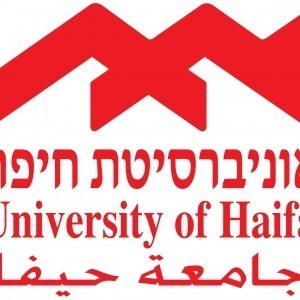Photos of university / #telavivuni
The Middle Eastern Studies program at Tel Aviv University offers students a comprehensive and multidisciplinary approach to understanding the complex social, political, historical, and cultural dynamics of the Middle East. Designed for those interested in gaining in-depth knowledge of one of the most strategically important and historically rich regions, the program combines insights from history, politics, sociology, anthropology, and cultural studies to provide a holistic perspective on the Middle East.
Students enrolling in this program will explore a wide range of topics, including the history of the Middle East from ancient times to the present, the development of modern Middle Eastern societies, the Arab-Israeli conflict, political movements and ideologies, religious developments, and contemporary issues facing the region such as democracy, nationalism, migration, conflict resolution, and economic development. The curriculum is structured to include both theoretical frameworks and empirical research methods, allowing students to critically analyze regional issues and contribute to scholarly and practical debates.
The program emphasizes language skills, with options for students to learn Hebrew, Arabic, or other regional languages, enhancing their ability to engage directly with primary sources and regional voices. Students have access to a rich array of resources, including extensive library collections, specialist archives, and opportunities for internships and research projects. The faculty comprises leading scholars and experts in Middle Eastern affairs, ensuring students receive education grounded in current research and real-world experience.
Graduates of the Middle Eastern Studies program are well-prepared for careers in academia, journalism, government, diplomacy, international organizations, and non-governmental organizations. They develop critical thinking, cross-cultural communication skills, and regional expertise that are highly valued in careers related to conflict resolution, policy analysis, cultural consultancy, and regional expert roles. The program also encourages engaging with current events and regional developments through conferences, seminars, and collaborative projects, fostering a dynamic learning environment.
Through its interdisciplinary approach, practical engagement, and focus on regional languages and cultures, the Middle Eastern Studies program at Tel Aviv University aims to produce informed, analytical, and socially responsible graduates equipped to understand and address the challenges and opportunities of the Middle East in the 21st century.
- History of the Middle East in the Modern Period
- Introduction to Islam
- Social and Cultural History of the Middle East
- Three elective courses in Middle Eastern Society, Culture, Politics or Religion
- Five elective courses in Middle Eastern Society, Culture, Politics or Religion
- Four elective tracks (other than their major choice) they would like to minor in
- Seminar
- Writing seminar (3 credits) –provides students with the skills needed to analyze texts, build logical arguments, and write effectively.
- Second language – all students are required to demonstrate proficiency in a language other than English by the time they graduate. Students who come in with advanced skills in a second language will be tested for exemption. Others are required to take courses in a language of their choice, out of a range offered by the university.
Requirements
- Online application
- Official high school diploma and transcript. Applicants in their final year of high school may submit a partial transcript. Their admission process will be complete once the final transcript and diploma are received.
- Results of the Scholastic Aptitude Test (SAT) or American College Test (ACT). These are only required for applicants graduating from a U.S. high school system, whether in the U.S. or abroad. TAU's SAT code is 0810, and our ACT code is 5517. Applicants who attended non-U.S. high schools should submit the results of analogous nationally administered tests.
- Two letters of recommendation from principal, teacher, guidance counselor, or others who are able to comment on the applicant’s academic abilities. Please ask your referees to submit their evaluations via email or through our online form.
- One personal essay (300-500 words)
- TOEFL or equivalent proof of English language proficiency - This is only required of graduates of high schools in which English was not the primary language of instruction. TAU's TOEFL code is 7704.
- A mandatory Health Declaration signed by the applicant and an additional witness.
- A signed medical form with a physician's approval.
The Middle Eastern Studies program at Tel Aviv University offers a variety of financing options to support students throughout their academic journey. Tuition fees for the program vary depending on the student's status—whether they are local, international, undergraduate, or graduate students. For Israeli residents, tuition fees are generally subsidized by the government, making the cost more affordable compared to international students, who are required to pay the full international tuition rates. Scholarship opportunities are available for outstanding students, including merit-based awards, research grants, and need-based financial aid. These scholarships are offered by the university’s scholarship fund, as well as external organizations dedicated to promoting Middle Eastern studies and related fields.
Students are encouraged to apply for scholarships early in the admission process, as competition can be intense. Additionally, Tel Aviv University provides work-study programs and teaching assistantships, which allow students to support themselves financially while gaining valuable academic experience. These positions often come with stipends or partial tuition waivers. External funding sources, such as government grants, cultural foundations, and international organizations, may also be accessible to students pursuing research or special projects related to Middle Eastern topics.
For international students, there are specific programs designed to facilitate financial planning, including guidance on applying for external scholarships and financial support systems. The university’s financial aid office offers counseling to help students understand the full scope of available financial resources and application procedures. Payment plans are typically available to spread tuition costs over multiple installments, easing the financial burden. Moreover, many students seek part-time employment opportunities in Tel Aviv, a vibrant city with a dynamic academic environment, to supplement their income.
Overall, the Middle Eastern Studies program at Tel Aviv University provides comprehensive financial support options to accommodate diverse student needs, prioritize accessibility, and promote academic excellence. Interested applicants should consult the university’s official website and contact the admissions office directly for the most current and detailed information regarding tuition fees, scholarships, and other funding opportunities.
Accommodation in dormitories
- $4,800 for the standard 8-month academic year
- $3,000 for the spring semester.
Students who pursue courses of a longer duration (such as English Literature courses or courses taught in Hebrew) will be charged additional fees for their extended stay in the dorms.
Important notes
- A non-refundable $100 application fee is not included above.
- Accepted students will be asked to pay a confirmation fee to guarantee their spot in the program.
- Trips, Student Activities, Facility Fees and Health Insurance are all included in the tuition fees quoted above.
- Study of the Hebrew language (Ulpan) is highly recommended and involves an additional fee.
- There is a replacement charge of $10 for lost student ID card, medical insurance card, or room keys.
Tuition includes excursions, activities, facility fees, and health insurance.


